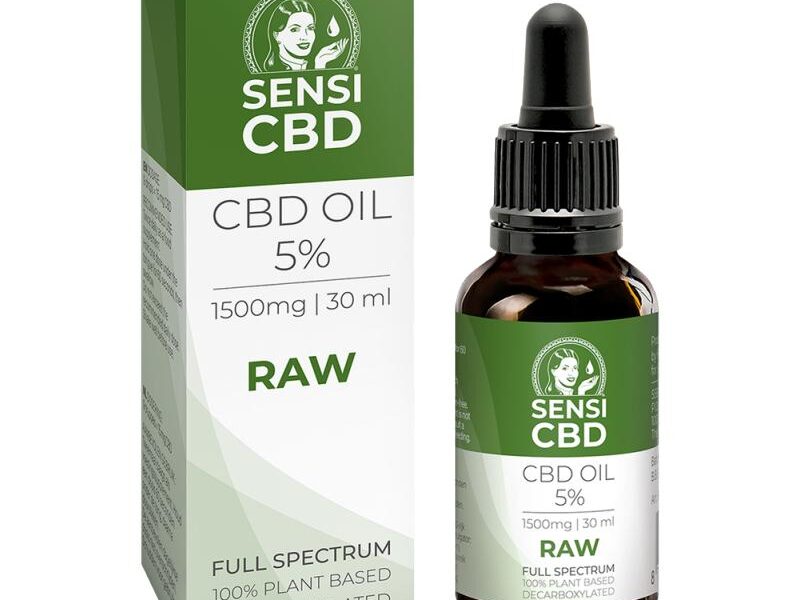In recent years, CBD oil has emerged from the shadows of controversy and confusion to bask in the bright light of legal acceptance across the United States. Once shrouded in a haze of misunderstanding surrounding its relationship to marijuana, this versatile hemp-derived compound has garnered attention not just for its purported health benefits, but also for its newfound legality in all 50 states. As more Americans become curious about the potential therapeutic properties of CBD, the landscape of regulations and perceptions continues to evolve. This article delves into the journey of CBD oil, tracing its path from an outlawed substance to a legally recognized wellness option, while exploring the implications and considerations for consumers in a landscape that is both promising and complex.
Table of Contents
- CBD Oil Legislation: Understanding the Journey to Nationwide Legality
- The Science Behind CBD: Benefits, Uses, and Safety Considerations
- Navigating the Market: Choosing the Right CBD Oil for You
- State-Specific Guidelines: What Consumers Need to Know Before Purchasing
- Q&A
- To Conclude
CBD Oil Legislation: Understanding the Journey to Nationwide Legality
The journey toward the nationwide legality of CBD oil has been marked by a complex landscape of legislation and regulation. Initially, the passage of the 2018 Farm Bill was a significant turning point, removing hemp-derived CBD products from the controlled substances list. This federal legalization provided a framework for states to develop their own rules regarding production, distribution, and use. As a result, many states have embraced CBD oil, implementing their own regulatory measures to ensure quality and safety, while others remain cautious, opting for stringent restrictions. This variance in policy has created a patchwork system, where consumers and businesses must navigate a maze of local regulations.
While most states have legalized CBD oil, the interpretation of what is permissible can differ markedly. Some common elements of state legislation include:
- Source of CBD: Many states allow only CBD derived from hemp, with strict limits on THC levels.
- Age Restrictions: Certain states impose age limits on the purchase and use of CBD products, particularly in edibles.
- Testing Requirements: Many regulations mandate third-party lab testing to ensure product safety and potency.
| State | Legislation Status |
|---|---|
| California | Fully Legal |
| Texas | Legal with restrictions |
| Idaho | Limited Use |
| New York | Fully Legal |
As interest in CBD oil continues to grow, the legislative landscape will likely evolve, reflecting new research and changing public perceptions. Advocates for CBD legalization argue for a standardization of laws to provide clarity and protect consumers, while opponents often call for more thorough scientific studies to address safety concerns. The path forward is uncertain, but the dialogue surrounding CBD oil is fueling an ongoing transformation in how lawmakers and the public view its medical and economic potential.
The Science Behind CBD: Benefits, Uses, and Safety Considerations
Research into CBD (cannabidiol) has burgeoned in recent years, revealing a myriad of potential benefits attributed to its interaction with the body’s endocannabinoid system. This complex system plays a crucial role in regulating various physiological processes such as mood, pain sensation, and immune response. Some of the most notable benefits of CBD include:
- Reducing anxiety – Many users report lower stress levels and improved overall well-being.
- Pain relief – CBD is often explored as an alternative for chronic pain management.
- Anti-inflammatory properties – Several studies suggest it may help alleviate symptoms associated with inflammation.
- Enhanced sleep quality – Individuals struggling with sleep disorders have found CBD helpful in improving their rest.
While the potential benefits are compelling, safety considerations are equally important. Although CBD is generally well-tolerated, users should be aware of possible side effects. Common reports include:
- Fatigue – A small percentage of users may experience tiredness.
- Dry mouth - This can occur but is usually manageable with hydration.
- Changes in appetite - Some may find themselves eating less or more than usual.
Moreover, consulting with a healthcare professional prior to starting CBD products is advisable, especially for individuals on existing medications. Understanding proper dosing and product sourcing—from reputable brands—can further enhance the safety of CBD utilization.
Navigating the Market: Choosing the Right CBD Oil for You
When venturing into the world of CBD oil, it’s essential to understand the variety of products available to ensure you select one that suits your needs. Consider the following factors before making a purchase:
- Source of Hemp: Verify whether the CBD oil is derived from organically grown hemp. This can impact the purity and quality of the product.
- Extraction Method: Look for oils that utilize CO2 extraction, as this method preserves the potency and benefits of cannabinoids.
- Cannabinoid Profile: Review the product’s lab results to understand the concentration of CBD, THC, and other cannabinoids present.
- Type of CBD: Determine whether you want full-spectrum, broad-spectrum, or isolate CBD oils, based on your preferences and wellness goals.
Additionally, researching the brand’s reputation can lead you to a more satisfying purchase. Check for customer reviews, industry awards, and certifications that confirm their commitment to quality:
| Brand | Reputation Score | Lab Tested |
|---|---|---|
| Brand A | 4.5/5 | Yes |
| Brand B | 4/5 | Yes |
| Brand C | 3.5/5 | No |
By weighing these considerations and gathering all the necessary information, you can confidently choose the right CBD oil for your individual needs and preferences.
State-Specific Guidelines: What Consumers Need to Know Before Purchasing
The legal landscape surrounding CBD oil varies significantly across the United States, despite its presence in all 50 states. Understanding these state-specific rules is essential for consumers considering a purchase. In many states, the legality hinges on the type of hemp-derived CBD oil and its THC content. For instance:
- States with legal recreational marijuana: Consumers can typically purchase CBD oil with higher THC levels easily.
- States with medical marijuana laws: Access to CBD oil may require a prescription.
- States with strict regulations: Some areas may restrict sales to only low-THC CBD derived from industrial hemp.
When purchasing CBD oil, consumers should also be aware of labeling regulations and sourcing practices, as these can differ widely. To help clarify the distinction, here’s a brief overview in table format:
| State Type | Legal Status for CBD Oil | Additional Requirements |
|---|---|---|
| Recreational States | Legal | No restrictions |
| Medical States | Legal | Prescription required |
| Fully Legal Industrial Hemp | Legal | Low THC (<0.3%) only |
| Highly Regulated States | Restricted | Compliance with state laws necessary |
Q&A
Q&A: Understanding CBD Oil Legality Across All 50 States
Q1: What is CBD oil, and why has it become so popular?
A1: CBD oil, short for cannabidiol oil, is a product derived from the cannabis plant, specifically hemp. Unlike its cousin THC (tetrahydrocannabinol), CBD does not produce psychoactive effects, making it appealing for those seeking relief from conditions like anxiety, pain, and insomnia without the “high.” Its growing acceptance in wellness and natural remedy circles has propelled its popularity.
Q2: Is CBD oil legal in all 50 states?
A2: Yes, CBD oil is legal in all 50 states of the U.S., but the specifics can vary. The 2018 Farm Bill legalized hemp-derived CBD, provided it contains less than 0.3% THC. This federal legislation paved the way for states to adopt their own regulations, leading to a patchwork of laws regarding production, sale, and use.
Q3: Are there any restrictions on CBD oil, despite its legality?
A3: Absolutely, while CBD oil is legal nationally, certain states have their regulations. Some may impose restrictions on the types of products that can be sold, how they are marketed, or who can buy them. It’s crucial for consumers to check their local laws, especially when traveling.
Q4: Can I get in trouble for using CBD oil even if it’s legal?
A4: Generally, if you are using legally obtained CBD oil that complies with federal and state regulations, you should not face legal repercussions. However, situations can arise if a product contains more than the legal limit of THC or if it is purchased from an unlicensed vendor. Always read product labels and make informed choices.
Q5: Does legal status guarantee product safety and quality?
A5: Not necessarily. The legal status of CBD does not equate to guaranteed safety and quality. Unlike pharmaceuticals, CBD products are not uniformly regulated by the FDA. Consumers are encouraged to seek out brands that provide third-party lab testing results to ensure product purity and potency.
Q6: What should I know before purchasing CBD oil in my state?
A6: Before purchasing, consider the source of the CBD oil. Is it made from organic hemp? Does it have a Certificate of Analysis (COA) from an independent lab? Additionally, familiarize yourself with your state’s regulations on CBD, including any age restrictions or limitations on sales.
Q7: How can I ensure I’m using CBD safely and effectively?
A7: Start with a low dosage, and increase gradually as needed, keeping track of your body’s response. It’s also advisable to consult with a healthcare professional, especially if you have existing health conditions or are taking other medications to avoid potential interactions.
Q8: Will CBD oil ever be regulated like other drugs?
A8: The future of CBD regulation remains uncertain. As more research emerges and the market continues to grow, it is possible that stricter regulations could be implemented to ensure consumer safety and product efficacy. Advocacy groups and industry stakeholders are actively engaged in shaping the regulatory landscape.
Q9: Where can I find reliable information about CBD legality?
A9: The best sources of reliable information are state government websites and reputable health organizations. These resources can provide updates on legislation, consumer rights, and safety guidelines related to CBD oil.
Q10: What’s next for the CBD industry?
A10: The CBD industry is on a growth trajectory, with ongoing research into its potential benefits and applications. As public interest expands, we can expect further innovation in product development, potential regulation changes, and, hopefully, a clearer understanding of CBD’s role in health and wellness.
To Conclude
As we conclude our exploration of the legal landscape surrounding CBD oil, it’s clear that a remarkable shift has taken place in the United States. With its newfound legality across all 50 states, CBD oil has emerged as a beacon of hope for countless individuals seeking relief and wellness. While the journey to this milestone has been marked by challenges and evolving regulations, the commitment to consumer safety and education remains paramount.
As you consider the potential benefits of CBD oil for yourself or a loved one, remember the importance of choosing high-quality products from reputable sources. Whether you’re a seasoned user or new to the CBD world, staying informed and engaged will help you navigate this burgeoning field with confidence.
In this era of legal acceptance, the possibilities are as expansive as the interpretations of its uses. From holistic wellness to innovative products, CBD oil is poised to play a significant role in the health and wellbeing of many. Here’s to embracing the future with curiosity and caution, ensuring that this trend enhances lives while fostering a responsible and informed community. Thank you for joining us on this journey, and may you find the clarity and relief you seek in the world of CBD.



